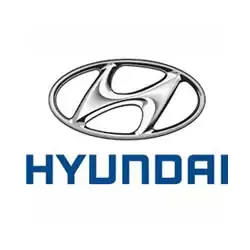Hyundai Accent Tire Pressure
Most common recommended tire pressure for Hyundai Accent is 33 psi based on year of production, trim and OEM tire size, but it maybe different for older models. It is imperative to confirm the exact tire inflation for your Hyundai Accent to ensure safety on the road. Always refer to your vehicle owner's manual for the correct tire pressure designated by vehicle's manufacturer.
Select your Hyundai Accent production year to see its recommended tire inflation.
| Model Year | Front Tires | Rear Tires |
|---|---|---|
| 2022 Hyundai Accent | 33 psi | 33 psi |
| 2021 Hyundai Accent | 33 psi | 33 psi |
| 2020 Hyundai Accent | 33 psi | 33 psi |
| 2019 Hyundai Accent | 33 psi | 33 psi |
Recommended Tire Pressure for Hyundai Accent
Maintaining the recommended tire pressure for a Hyundai Accent is crucial for several interrelated reasons that center around safety, fuel efficiency, and tire longevity. Firstly, adhering to the manufacturer's recommended tire pressure enhances vehicular safety by improving the tire's road grip, significantly influencing handling and braking performance, particularly in adverse weather conditions. This optimal pressure prevents the tire from underperforming due to underinflation, which can lead to uneven tire wear, increased stress on the vehicle's framework, and potentially dangerous blowouts. Secondly, correct tire pressure is paramount for achieving optimal fuel efficiency. Under-inflated tires increase rolling resistance, meaning the engine has to work harder to propel the vehicle forward, leading to increased fuel consumption. Hence, maintaining the recommended pressure can contribute to noticeable savings on fuel costs over time. Lastly, proper tire pressure safeguards the tire's integrity, ensuring even wear and extending the tire's service life. For Hyundai Accent owners, adhering to the recommended tire pressure not only ensures the vehicle performs efficiently and safely but also contributes to reducing overall ownership costs through improved fuel economy and decreased tire replacement frequency. Therefore, regular checks and adjustments to tire pressure are a simple yet effective maintenance activity that yields significant benefits.

All listed guides, data and/or calculations are for informational purposes only. TirePressure.com does not warrant or make any representations regarding the accuracy of or the results of the use of this information. Always refer to vehicle owner's manual for the correct tire pressure configuration.